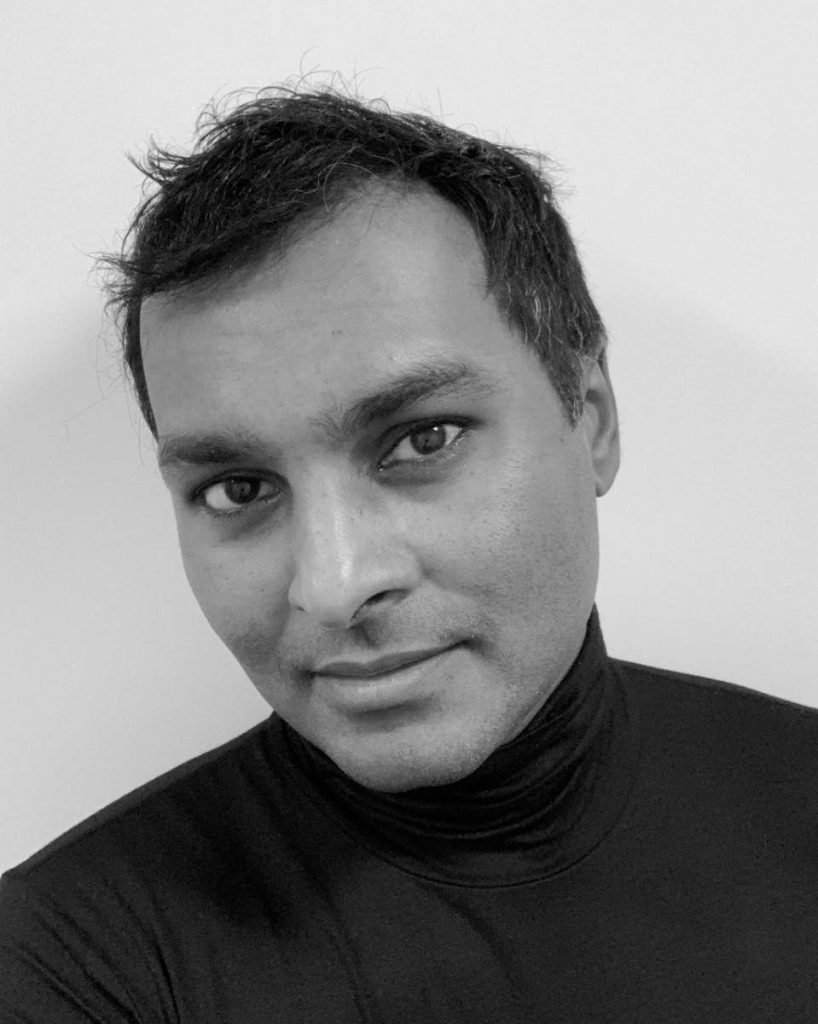Famalalay 2020

ANDIL GOSINE
Thirteen feels unlucky today, although it most certainly is not.
Thirteen years ago, I returned to Trinidad with my then partner. He and I were young sweethearts – “child brides,” a friend from New Delhi called us – and had already been together for eight years by the time of our trip.
I was excited to show him the place I grew up and introduce him to some of the family I loved and whom, I was sure, loved me.
He didn’t fall in love with my Trinidad.
Relatives had trouble hiding their unease and just about everyone we encountered collaborated in a quieting effort. We felt the pressure everywhere to have to not show what was clearly showing. Perhaps, if we were not so recognisable as a couple – we just “fitted” – there might have been less worry about what was supposed to remain unspoken.
This year, another relative picks me up at the airport, but this time I’m with a very platonic friend who came along for a few days, just to see TT. There are no signs of chemistry between us. Personally, I think we give off a “two work colleagues make small talk at a Christmas party” kind of vibe.
But as we’re two people and moving together for those few days of his visit, so get read as a couple.
We queue separately at customs, but the officer gives only an encouraging smile and when he has to point over to me for the Airbnb information, explaining that he doesn’t know what it is, since I booked everything, an encouraging “Enjoy your visit, guys,” follows.
At duty free, we’re paying for our stock separately, but the cashier offers to cash us out together since, you know, we’re supposed to be together.
And when we’re picked up at the airport, the same relatives who didn’t hide how deeply pained they felt to have to engage my partner 13 years ago couldn’t have extended more warmth to my visiting friend, whom they too read as my new boyfriend.
They brought food and parsad, and, where questions were entirely addressed in singular form back then, almost as if the person next to me did not exist, now they were very plural.
“What are you boys going to do?”
“You not taking him to the beach?”
“But you have to show him X, Y and Z…”
We arrive at the Airbnb and the caretaker couldn’t be friendlier.
Thirteen years ago, my ex and I would play a daily game at the hotel of putting together beds every day after the cleaner moved them apart.
But now, in this Airbnb with three distinct sleeping places, caretaker and relatives alike assume we’ll be sharing one bed.
When we chat about how to cope with the road noise the next day, the caretaker seems genuinely bummed to learn we’re sleeping in separate spots.
In taxis, at stores, the bag check-in at MovieTowne, the instinct is to couple us. And there’s not even a hint of suspicion or disapproval. Warm indifference is about as cold as it gets.
Jason Jones’ victorious suit against the government gets most of the credit for this sea change, but while it’s certainly made a huge impact, there’s no doubt most of the credit has to go to the many activists who have been steadfastly working toward this better day.
I’ve always encountered that tendency to “couple” whenever I’m with one of my close girlfriends – people love couples but are always anxious about singles – but this time I feel irritated, troubled by the memory of 13 years ago, of the failure to bridge the bond between blood and chosen family.
My relationship would endure for three more years after the visit to Trinidad. It would ultimately end in no small part because, like the good Indian country boy I was raised to be, I was too dutiful to the blood family.
His parents couldn’t have been more embracing: shortly after they met me, his mum showed so much approval that she started to build a china collection for us. She called and tried to talk me out of leaving, and was eventually instructed by her son to stop contact with me.
When I couldn’t hide my devastation over the end of my 11-year relationship with my first love, my mother expressed only annoyance. Knowing why and how long we’d been together, she snapped, “I don’t know why you’re so upset about some stranger.”
Thirteen years on, my head knows to appreciate the embrace that would be available now, but my heart is a little broken by the 20/20 hindsight feeling of it all.
Andil Gosine is professor of Environmental Arts and Justice at York University in Toronto. His solo exhibition rêvenir,
which explores themes of love and nostalgia, is at Medulla Gallery, Woodbrook. Gosine will be in conversation with writer, poet and journalist André Bagoo on February 13,7 pm-9 pm, 37 Fitt Street, Woodbrook, Port of Spain.
Gallery hours are: Monday-Friday 10 am-6 pm and Saturday 11 am-2 pm.

Comments
"Famalalay 2020"